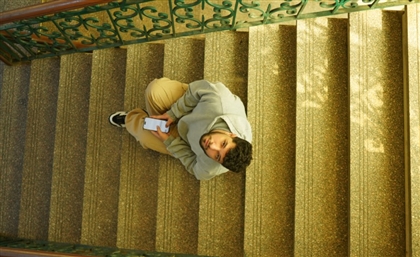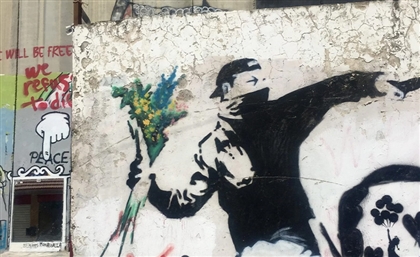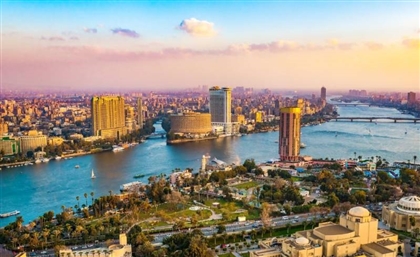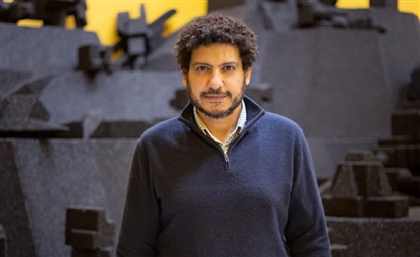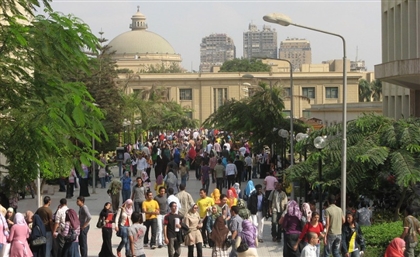Aya Tarek: For Art's Sake
You'd be hard pressed to find an art aficionado that hasn't heard of Aya Tarek - a name that's made headlines and hashtags across the world. However, the imaginative Alexandrian doesn't want to be famous, she just wants her work to be felt...
She's only 24 but she's already established herself as a force to be reckoned with on the international scene, having rocketed into prominence in recent years. Those who aren't already familiar with her work may remember Aya Tarek from a little film called Microphone, where she played herself as one emblem of Alexandria's thriving but repressed underground arts scene.
But unlike the burgeoning young scene of graffiti artists who became widely recognised after the revolution, Aya Tarek would rather set herself apart from the movement that espouses graffiti as a purely political platform. Indeed, she did not take the traditional route of Egyptian graffiti artists, many of whom jumped on the bandwagon after a space was created for the medium in 2014.

Tarek has been creating street art since 2008, painting murals throughout Alexandria during her earlier years, in her own distinctive style. But street art was not strictly the original plan. Inspired by her grandfather initially, who was a graphic designer and painter of film posters in the 1960s, she studied art, but then found herself needing to move out of traditional outlets.
"I didn't choose [street art] right away, I was just experimenting with everything; animation and comics. Comics mainly," she tells us. She began her ventures into the art world by studying Fine Art at Alexandria University, but soon found that the conventional impositions of the academic setting ran counter to her own creative inclinations.
"There I had to study oil painting and nothing else. They bring you these objects, like an 2olla, and you have to draw this 2olla for four years. So I started getting bored, and the first year I went back to my grandfather's place and cleaned it up, and I told my friends to come over, let's experiment with stuff."
From there she went on to create street art on the winding roads of Alexandria, where she worked with friends on an almost clandestine basis, creating art in various places. Indeed, it is to the streets of Downtown Alexandria, where her grandfather's studio was located, that she feels as though she owes her beginnings.
"I think Downtown Alexandria inspired everything I do. The architecture from back then was really great. I used to hang out and see these amazing buildings in Art Deco. Even during the 90s, the city was stuck in the 60s, so the comics I used to buy were from the 60s. Everything was time capsuled in this era and we didn't have anything else. So it was like I was in a different era, in this era," she says.
As a budding young artist, she had high hopes to be exhibited, but ended up taking a slight detour along the way. In a previous interview, she said that while she had tried to gain exposure at an early age, she "found that the institutional structure imposes certain stereotypes. You should have a certain degree, to have studied at a specific institution. There was a hegemony from conceptual art… anyone who isn't a conceptual artist isn't welcomed in galleries."
In spite of this setback, Tarek would nonetheless go on to challenge this institutionalised approach to art and democratise the medium. Several years later, she's become the face of alternative art in Egypt, championing an art for the people in the most democratic form available, sans the prescriptive attitude that much of the graffiti that came out of the revolution upholds.
Perhaps for these reasons, she can better be described as a muralist, rather than a graffiti artist - all the more so because her work betrays a particular attention to detail and technique. And though local social - and at times subtly political - aspects feature in her art, she shies away from overt political messages. Instead, her art typically touches on these social aspects without being didactic, choosing instead to quietly critique her surroundings.

"I used to say I'm not political, but I realised that everything you do is political. Walking down the street is political," she says. "So, it is political, but it doesn't have to be propaganda."
"I just want to open the wonder-box, and allow people to go wherever they want. You just have to think, that's all," she says. Much of her work, both locally and internationally, sheds light on minority issues and finds interesting ways of critiquing the status quo in a way that is consistent with the art itself.
Yet, the medium is not free of its challenges, and in the days following the aftermath of the revolution, Tarek tells us that she often finds herself wanting to escape the limitations placed on her by the current environment in Egypt. In the days following the revolution, she found herself less and less willing to continue working on the streets in Egypt, after they became saturated with a very particular form of graffiti.
"[Before the revolution] it was more experimental, and people were experimenting with new concepts and new styles, and there was a real thing going on and developing. When this exposure came [with the revolution], everyone became a star. They can produce any shit, and all the journalists would come and talk to them. It boosts your ego at a very early stage, and it's bad. The thing is I realised this from others, because a lot of people entered the field because they wanted to get famous."
She's been vocally critical of much of the graffiti that has recently come to replace other murals, in particular in the recent months. "It just doesn't make sense, because the absolution of right and wrong [doesn't make sense]. The revolution changed something about my perspective; that there is no absolute. I'm not gonna lecture people about right and wrong [through my art]."
Nonetheless refusing to be limited by her geographical location, she's since worked on street art all over the world, from Germany to Lebanon, and has continued to develop her art in new and interesting forms and mediums. "I don't believe in geographical boundaries, because I'm in Alexandria and nothing's happening, but at the same time I'm working all over," she says.
Her past projects have included a project in Vienna called Money Makes Visible, and she partook in Beirut's White Wall exhibition, which saw elements of the city's thriving street art scene come together.

Aya Tarek is currently disrupting the streets of Germany, working on an ongoing project called Secret Propaganda Shop in Stuttgart, which focuses on a series of posters (one of which is pictured above) critiquing the propaganda-style of street artists, as well as focusing on self-critique in a variety of issues such as gender and nationalism. She will also be partaking in the upcoming street art festival entitled Djerbahood, in Djerba, Tunisia, which will be bringing together 150 prominent international street artists, as well as other upcoming projects abroad.
You can follow her on Twitter @queenofazarita, or through her Facebook page.
- Previous Article HRW Rabaa Report: A Crime Against Humanity
- Next Article Nomades Land




